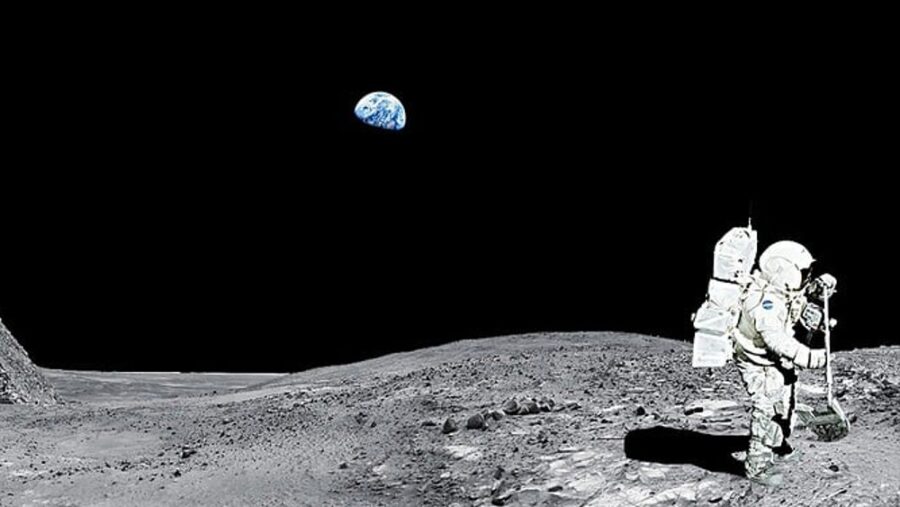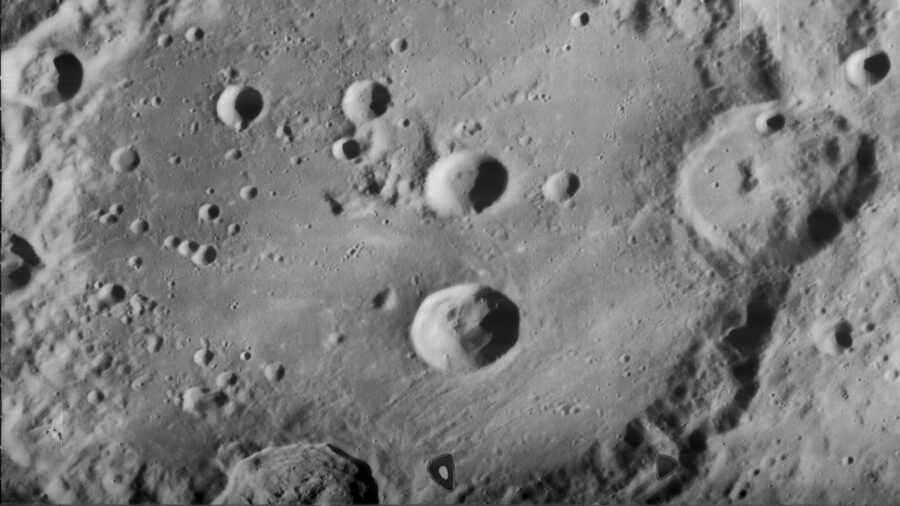NASA Studying How To Profit From The Moon

Earth’s moon is an essential natural satellite for a number of reasons, like stabilizing our climate, causing tides, and providing a source of light during nighttime hours by reflecting light from the sun. But more is better, according to the Defense Advanced Research Projects Agency (DARPA), which has plans with NASA to develop a moon economy over the next decade through their 10-Year Lunar Architecture (LunA-10) study.
DARPA’s LunA-10 initiative will allow agencies and countries to explore new and exciting opportunities like scientific research and lunar tourism.
Though this initiative at first sounds like a menacing plan to mine the moon for resources for the sake of our economy, it’s actually a key step in developing new technological innovations that will ultimately guide us in our efforts to send manned missions to Mars.
In other words, by creating a survivable and sustainable moon economy, DARPA’s LunA-10 initiative will allow agencies and countries to explore new and exciting opportunities like scientific research and lunar tourism. But a moon economy can’t be built overnight, and has to be regulated to make sure that companies and world powers alike don’t cause harm to the celestial body.
As of this writing, the European Space Agency anticipates roughly 400 missions that will launch to the moon between now and 2032.
In the short term, LunA-10 will vet and select a number of companies that have innovations in mind for the moon economy that will include initiatives involving lunar transmission, energy, and communications, among others.

And the clock is ticking; companies that want to be involved in developing a moon economy must submit three-page abstracts by September 6, 2023. Respondents who are selected by LunA-10 after submitting their abstracts will then be tasked with submitting a 10-page white paper and technical presentation by September 25.
White papers that are accepted will result in a grant of up to $1,000,000, and respondents will be encouraged to collaborate through engineering efforts. Though individual and commercial ventures will be considered for the moon economy, DARPA will probably favor initiatives that involve collaboration in the form of engineering efforts that have an emphasis on clustered lunar activity.
In October 2023, the Lunar Surface Innovation Consortium will announce the projects that have been green-lit, and those projects will be expected to brief the lunar community in a follow up April 2024 meeting, with the stipulation that they provide a final report by June 2024.
What Exactly Is A Moon Economy?
The phrase “moon economy” suggests that we’re going to exploit the moon for natural resources, but the real intention behind the project is developing technology that will eventually lead to mankind living for long periods of time on celestial bodies other than Earth.
Given the moon’s close proximity to Earth compared to Mars, it makes sense to use the moon as a testing ground, and develop an economy that will allow for technological maturation that will allow researchers to pursue this end goal.
Though this initiative at first sounds like a menacing plan to mine the moon for resources for the sake of our economy, it’s actually a key step in developing new technological innovations that will ultimately guide us in our efforts to send manned missions to Mars.
As for funding, DARPA will not be financing a selected company’s development of concepts, construction, or transportation to the moon. DARPA will, however, provide economic insight to the selected teams to ensure that a thriving moon economy is attained through their efforts.
The development of a moon economy, or any economy for that matter, can possibly lead to conflict, but DARPA ensures that “all developments and involvement by civilian and/or military personnel in this effort pertain to scientific and peaceful purposes.”
As framework for the LunA-10 project continues to be developed, we can all hope that this is simply another giant leap for mankind in our efforts to continue to peacefully explore space for the benefit of humanity as a whole.










